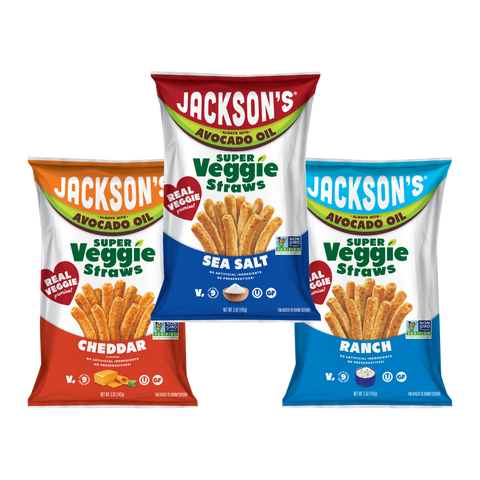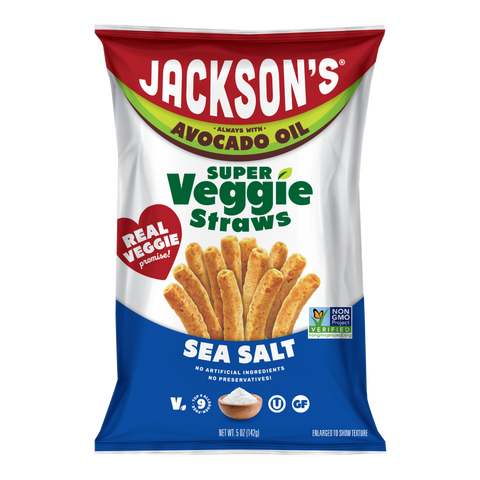From Olive to Avocado: Exploring Canola Oil Substitutes

For years, canola oil has been one of the most popular cooking oils, praised for its adaptability and neutral flavor. But as we delve deeper into the culinary world, questions linger about its health effects and the distinct flavors it brings to our meals. What if there was a whole range of alternatives just waiting to be discovered – options that not only challenge the status quo but also offer unique benefits for both our health and our taste buds?
It's time to rethink canola oil, understanding that while it has its strengths, there are other, perhaps more tempting, substitutes ready to take center stage. Join us on this exploration of canola oil alternatives, where we'll uncover options that not only rival but also surpass the reigning champion, promising a healthier and more flavorful experience in your culinary creations. Let's break free from the familiar and embrace a world of oils that redefine what it means to truly elevate our dishes.
Why substitute canola oil?
Substituting canola oil with healthier alternatives becomes a strategic move, considering some of the drawbacks associated with this commonly used oil. Classified among the "Hateful 8" oils due to its high omega-6 fatty acid content, canola oil's potential contribution to inflammation and overall health concerns prompts a closer examination of its role in our kitchens.
Opting for healthier oils such as olive oil, avocado oil, or walnut oil offers not only impressive nutritional profiles but also a more diverse range of flavors to enhance your culinary creations. This shift is not merely about taste; it's a step towards potential benefits like improved metabolism, healthier skin, and a reduction in inflammation. Beyond expanding your culinary horizons, exploring alternatives aligns with a holistic approach to nutrition, allowing you to tailor your cooking experience for both flavor and well-being.
What are the best substitutes for canola oil?
These oils, with their unique benefits, flavor profiles, and smoke points, can be used as replacements for canola oil in a wide range of cooking and baking recipes.
Olive Oil
Renowned for its rich, fruity flavor and heart-healthy monounsaturated fats, olive oil is a versatile canola oil substitute. Ideal for sautéing, salad dressings, and drizzling over finished dishes.
Avocado Oil
With a high smoke point and a subtle, buttery taste, avocado oil is perfect for both high-heat cooking and as a finishing oil. It brings a nutritious boost, containing monounsaturated fats and vitamin E. Jackson's, in particular, loves incorporating avocado oil into their kettle-cooked paleo and vegan sweet potato chips for its nutritional value and benefits with inflammation on an AIP diet.
Coconut Oil
Known for its distinct tropical aroma and flavor, coconut oil adds a unique touch to both sweet and savory dishes. It's solid at room temperature but melts easily, making it suitable for baking and frying.
Peanut Oil
Boasting a mild, nutty taste and a high smoke point, peanut oil is an excellent choice for frying, stir-frying, and deep-frying. It imparts a subtle flavor to dishes without overwhelming them.
Almond Oil
With a delicate nutty flavor, almond oil is a lighter alternative that complements salads, dips, and baking. It adds a hint of sweetness and works well in dishes where a subtle nuttiness is desired.
Applesauce
While not an oil, applesauce is a creative canola oil substitute in baking. It adds moisture and a hint of sweetness to recipes, making it an excellent option for reducing or eliminating oil in certain desserts and baked goods.
Safflower Oil
With a neutral flavor and a high smoke point, safflower oil is a versatile cooking oil suitable for frying, roasting, and sautéing. It is low in saturated fats and can be used in a variety of culinary applications but is considered a seed oil.
Cottonseed Oil
Extracted from the seeds of the cotton plant, cottonseed oil has a mild taste and a high smoke point, making it suitable for frying and cooking at high temperatures. It's often used in commercial cooking.
Ghee
Clarified butter with a rich, nutty flavor, ghee is a popular choice for high-heat cooking and Indian cuisine. It adds a depth of flavor to dishes and is free from the milk solids found in regular butter.
Butter
A classic choice with a rich, creamy taste, butter is suitable for baking, sautéing, and finishing dishes. While higher in saturated fats, its flavor can be unmatched in certain culinary applications. Use it judiciously for a luxurious touch.
Canola Oil Substitutes FAQ
How do I choose the best canola oil substitute for a particular recipe?
The key is to match the substitute with the intended use in your recipe. For high-heat cooking, options like avocado oil, peanut oil, or grapeseed oil work well. If you're looking for a mild, versatile option, olive oil is a go-to. Nut oils, such as almond or walnut oil, can add distinct flavors to salads and baked goods. Understanding the smoke points, flavors, and nutritional content of different oils helps tailor your choice to the specific requirements of each dish.
Can I substitute canola oil with unconventional options, and how do I use them?
Absolutely! Unconventional oils like camelina oil, perilla oil, or pumpkin seed oil can be exciting substitutes. Camelina oil, for instance, with its nutty flavor, works well in dressings and marinades. Perilla oil adds a unique touch to Asian dishes, and pumpkin seed oil enhances the earthy notes in soups or salads. Use these oils with creativity, starting with small quantities to understand their flavors, and experiment to find the perfect balance in your recipes.
Mastering Canola Oil Substitutes in Your Recipes
Understanding Smoke Points
Different oils have varying smoke points, affecting their suitability for specific cooking methods. For high-heat applications like frying or stir-frying, opt for oils with higher smoke points such as avocado oil or peanut oil. Save delicate oils like flaxseed or walnut oil for low-heat applications or finishing touches.
Substitution Ratios
When substituting canola oil, consider the oil's viscosity and flavor intensity. For a one-to-one substitution, olive oil is often a reliable choice due to its similar consistency. Experiment with other oils by starting with a 1:1 ratio, adjusting based on the desired taste and texture of your dish.
Temperature Guidelines
Match the oil to the cooking temperature. For searing or high-heat sautéing, use oils with higher smoke points like avocado oil. For lower-temperature applications such as salad dressings, opt for oils like extra virgin olive oil or walnut oil to preserve their delicate flavors.
Flavor Pairings
Each oil contributes its unique flavor to a dish. Pair the distinctive nuttiness of almond oil with salads or desserts. Enhance the earthy tones of pumpkin seed oil in soups or drizzle it over roasted vegetables. Recognize the flavor profiles of alternative oils and match them to your recipe for a harmonious result.
Baking Success with Alternative Oils
Experiment with oils like applesauce or avocado oil in baking for a healthier twist. When using liquid oils, substitute them in a 1:1 ratio for melted butter or canola oil in recipes. Applesauce, in particular, can replace oil with a 1:1 ratio in many baking recipes, adding moisture and subtle sweetness.
Balancing Health and Flavor
Consider both health benefits and flavor when choosing substitutes. While oils like olive and avocado offer nutritional advantages, nut oils like walnut or almond contribute unique tastes. Strike a balance based on your dietary goals and the culinary experience you want to create.
By understanding the nuances of alternative oils, from smoke points to flavor profiles, can elevate your cooking skills and it can let you create dishes that truly stand out.
The Takeaway
Exploring canola oil substitutes opens up a world of diverse flavors and nutritional benefits. Jackson's has recognized the importance of steering clear from seed oils like canola in their kettle-cooked chips, and has embraced avocado oil for its nutritional value and anti-inflammatory benefits in their cooking process. This emphasizes the broader significance of making informed choices in our culinary adventures—choices that not only enhance taste but also contribute to our overall well-being. As we continue to experiment in our kitchens, may we savor the richness that alternative oils bring to our dishes, creating a healthier and more flavorful culinary journey.
No Seedy Oils Here
Avocado Oil Goodness Meets Irresistible Flavor - No Seed Oils Here!
-

 8 Pack New Arrival!Variety Pack Super Veggie Straws in Avocado Oil 5oz (Pack of 8)
8 Pack New Arrival!Variety Pack Super Veggie Straws in Avocado Oil 5oz (Pack of 8)Variety Pack
Super Veggie Straws in Avocado Oil
- Size
- 5oz bags
- Regular price
- $35.99
- Sale price
- $35.99
- Regular price
-
$35.99 (Liquid error (snippets/product-price line 131): divided by 0 per bag) - Unit price
- per
-

 8 Pack Best SellerSea Salt Sweet Potato Chips in Avocado Oil 5oz (Pack of 8)
8 Pack Best SellerSea Salt Sweet Potato Chips in Avocado Oil 5oz (Pack of 8)Sea Salt
Sweet Potato Chips in Avocado Oil
- Size
- 5oz bags
- Regular price
- $35.99
- Sale price
- $35.99
- Regular price
-
$35.99 (Liquid error (snippets/product-price line 131): divided by 0 per bag) - Unit price
- per
-

 8 PackWavy Sea Salt Sweet Potato Chips in Avocado Oil 5oz (Pack of 8)
8 PackWavy Sea Salt Sweet Potato Chips in Avocado Oil 5oz (Pack of 8)Wavy Sea Salt
Sweet Potato Chips in Avocado Oil
- Size
- 5oz bags
- Regular price
- $35.99
- Sale price
- $35.99
- Regular price
-
$35.99 (Liquid error (snippets/product-price line 131): divided by 0 per bag) - Unit price
- per
-

 8 PackVariety Pack Kettle Chips in Avocado Oil 5oz (Pack of 8)
8 PackVariety Pack Kettle Chips in Avocado Oil 5oz (Pack of 8)Variety Pack
Kettle Chips in Avocado Oil
- Size
- 5oz bags
- Regular price
- $35.99
- Sale price
- $35.99
- Regular price
-
$35.99 (Liquid error (snippets/product-price line 131): divided by 0 per bag) - Unit price
- per









